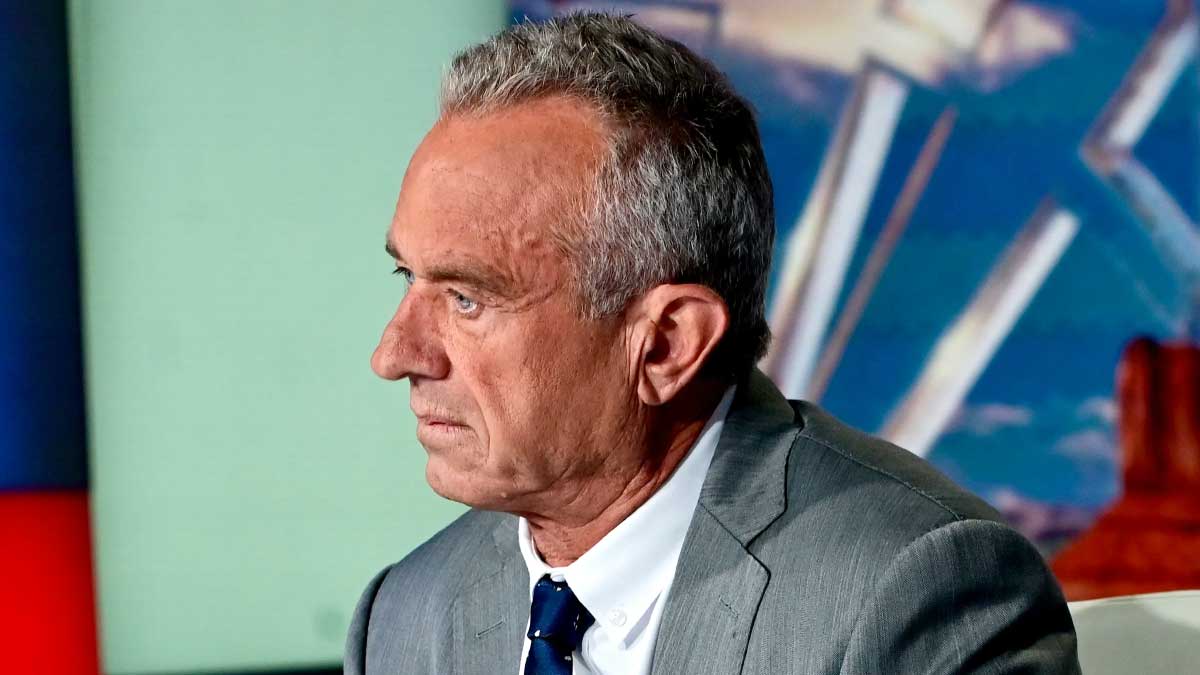- Home
- Billionaires
- Investing Newsletters
- 193CC 1000
- Article Layout 2
- Article Layout 3
- Article Layout 4
- Article Layout 5
- Article Layout 6
- Article Layout 7
- Article Layout 8
- Article Layout 9
- Article Layout 10
- Article Layout 11
- Article Layout 12
- Article Layout 13
- Article Layout 14
- Article Sidebar
- Post Format
- pages
- Archive Layouts
- Post Gallery
- Post Video Background
- Post Review
- Sponsored Post
- Leadership
- Business
- Money
- Small Business
- Innovation
- Shop
Recent Posts
Robert F. Kennedy Jr. Stays on Ballot in Key Swing States

Robert F. Kennedy Jr., who recently ended his independent campaign for the presidency, has faced mixed success in his efforts to remove his name from the ballot in key battleground states. Despite his decision to exit the race and endorse former President Donald Trump, Kennedy remains on the ballot in several states where his presence could influence the outcome, particularly for Vice President Kamala Harris, who is competing against Trump.
In Michigan, where Kennedy was nominated by the Natural Law Party, and in Wisconsin, election laws have complicated his efforts to withdraw. Election officials in both states confirmed that once a candidate qualifies for the ballot, they must appear unless they die, making it impossible for Kennedy to remove himself from the race in these crucial swing states. This decision could have a subtle yet notable impact on the election, with RealClearPolitics analysis indicating that Harris might gain a slight advantage in both states with Kennedy’s name still on the ballot. Specifically, Harris is projected to gain 0.1 points in Michigan, where she already leads Trump by 2.2 points, and 0.5 points in Wisconsin, where her lead is a narrower one point.
Kennedy’s name will also remain on the ballot in North Carolina, where his supporters formed the We the People Party to nominate him. Despite a request from the party to remove him, the North Carolina State Board of Elections voted against it, ensuring his continued presence on the ballot. Harris leads Trump by two points in North Carolina, with or without third-party candidates, according to a recent New York Times/Siena College poll, but Kennedy’s candidacy could still play a role in the final vote tally.
However, Kennedy has been more successful in other states. In Pennsylvania and Nevada, two battlegrounds where his candidacy was being contested in court, Kennedy’s legal team opted to withdraw from the legal battles, leading to settlements that will likely result in his removal from the ballot. Similarly, in Arizona and Texas—both crucial states—Kennedy has successfully withdrawn his name. In Florida and Ohio, where the deadline to finalize ballots had not yet passed, Kennedy preemptively ended his efforts to secure a spot on the ballot, avoiding any potential impact on those states’ outcomes.
The situation in Georgia remains uncertain. An administrative judge recently ruled that Kennedy was not qualified to appear on the ballot due to issues with the petition process, but the final decision rests with Secretary of State Brad Raffensperger. If Kennedy remains on the ballot in Georgia, it could further complicate the race, especially in a state known for its close elections.
Kennedy’s initial presence on the ballot in 23 states, with qualifications met in 17 others, highlights the significant reach of his campaign before his withdrawal. His decision to exit the race was influenced by internal polls suggesting his candidacy could hurt Trump more than help him, particularly in states with tight races. Despite polling at less than 5% nationally when he dropped out, Kennedy’s potential to act as a spoiler in swing states with narrow margins remains a concern for both major parties.
Kennedy’s exit and endorsement of Trump were not entirely unexpected. His running mate, Nicole Shanahan, had hinted at the possibility in an interview the week before, and Trump’s campaign later confirmed Kennedy’s and former Rep. Tulsi Gabbard’s appointments to his transition team. Kennedy cited several reasons for ending his campaign, including what he described as “relentless systemic censorship” by the media, which he claimed prevented his campaign from gaining traction. He also acknowledged that his presence on the ballot in battleground states could inadvertently aid Harris, prompting his decision to withdraw from the race.
Despite his exit, Kennedy’s impact on the election remains uncertain. While his removal from ballots in some states will minimize his role as a potential spoiler, his continued presence in others could still influence the final outcome. As the election approaches, the focus will likely remain on how his endorsement of Trump and the resulting shifts in voter support play out in key states.
In summary, Robert F. Kennedy Jr.’s efforts to remove his name from the ballot have met with varied success, leaving him on the ballot in some critical swing states where his candidacy could still play a role in the election. His endorsement of Trump, coupled with his withdrawal from the race, adds another layer of complexity to an already contentious and closely watched presidential contest. Whether Kennedy’s presence will ultimately benefit Harris or Trump remains to be seen, but his decision to exit has undoubtedly left its mark on the 2024 election landscape.
Recent Posts
Categories
- 193cc Digital Assets2
- 5G1
- Aerospace & Defense46
- AI37
- Arts3
- Banking & Insurance11
- Big Data3
- Billionaires449
- Boats & Planes1
- Business328
- Careers13
- Cars & Bikes76
- CEO Network1
- CFO Network17
- CHRO Network1
- CIO Network1
- Cloud10
- CMO Network18
- Commercial Real Estate7
- Consultant1
- Consumer Tech180
- CxO1
- Cybersecurity68
- Dining1
- Diversity, Equity & Inclusion4
- Education7
- Energy8
- Enterprise Tech29
- Events11
- Fintech1
- Food & Drink2
- Franchises1
- Freelance1
- Future Of Work2
- Games141
- GIG1
- Healthcare78
- Hollywood & Entertainment186
- Houses1
- Innovation42
- Investing2
- Investing Newsletters4
- Leadership65
- Lifestyle11
- Manufacturing1
- Markets20
- Media193
- Mobile phone1
- Money13
- Personal Finance2
- Policy567
- Real Estate1
- Research6
- Retail1
- Retirement1
- Small Business1
- SportsMoney33
- Style & Beauty1
- Success Income1
- Taxes2
- Travel10
- Uncategorized8
- Vices1
- Watches & Jewelry2
- world's billionaires418
Related Articles
Trump Moves $4B Stake in Truth Social Parent, Stock Drops 6%
Donald Trump recently transferred his 57% stake in Trump Media & Technology...
By 193cc Agency CouncilDecember 20, 2024House Rejects Trump-Backed Funding Bill, Shutdown Looms
The U.S. House of Representatives rejected a new government funding bill on...
By 193cc Agency CouncilDecember 20, 2024Trump Named Time’s Person of the Year for Second Time
On Thursday, Time magazine honored Donald Trump as its “Person of the...
By 193cc Agency CouncilDecember 12, 2024Meta Donates $1 Million to Trump’s Inaugural Fund
Meta, the parent company of Facebook and Instagram, has confirmed a $1...
By 193cc Agency CouncilDecember 12, 2024















Leave a comment